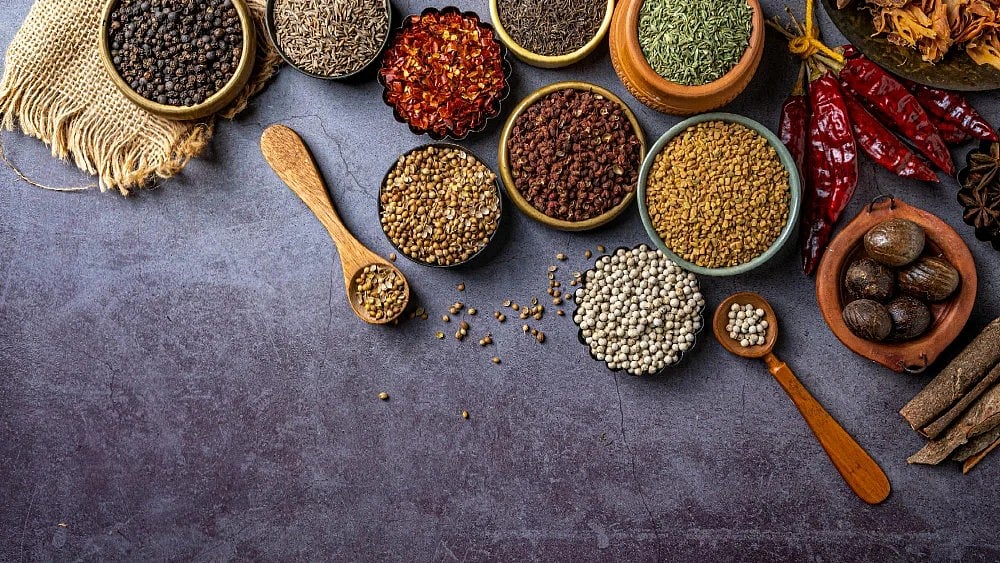
India, Oct. 9 -- Kerala, renowned for its agricultural heritage, marine resources, plantation crops, and artisanal production, is poised to experience significant economic benefits from recent Goods and Services Tax (GST) reforms. These reforms introduce substantial rate reductions across critical industries, offering cost reductions and making products more competitive in the global market. From the spice gardens of Idukki and Wayanad to the coir factories of Alappuzha, the fisheries hubs of Kochi and Kannur to the cashew corridors of Kollam, all sectors of Kerala's economy are set to benefit.
The reforms not only affect goods but also services, with tourism, Ayurveda, and wellness industries receiving tax relief, thus making Kerala a more attractive destination for global visitors. These changes are expected to revitalize the state's traditional sectors while paving the way for inclusive and sustainable economic growth.
Agriculture & Agro-processing
Cashew ProcessingThe cashew processing industry in Kollam, which employs around 300,000 workers in micro-units and cooperatives, is set to benefit from a reduction in GST from 12%/18% to 5%. This will result in a 6-11% cost reduction, strengthening the sectors global competitiveness and improving margins for processors who cater to both domestic and international markets, including the GCC, US, and EU.
Wayanad Robusta CoffeeThe reduction in GST on instant coffee and preparations from 18% to 5% will support Kerala's Wayanad coffee belt, home to small-scale farmers and entrepreneurs. The state's coffee sector, employing 50,000 workers, will see a ~11% cost reduction, boosting Kerala's position in the domestic and export markets.
Malabar PepperThe GST reduction on Malabar Pepper from 18% to 5% is expected to bring significant relief to the state's spice economy. With 11% cost savings, this move will make Keralas GI-tagged Malabar Pepper more competitive globally, benefiting smallholder farmers, seasonal laborers, and processors. In 2022-23, Kerala accounted for a major share of Indias $87 million pepper exports.
Alleppey Green CardamomWith GST cuts on extracts and masala mixes from 18% to 5%, the Alleppey Green Cardamom industry will see a 11% reduction in costs. This is expected to strengthen Keralas position in the global cardamom market, benefiting smallholders and workers involved in the processing of this high-value spice.
Vazhakulam PineappleThe food processing sector, accounting for 29.5% of Keralas workforce, is set to benefit from a GST reduction on processed pineapple products from 12% to 5%. This will boost Keralas Vazhakulam pineapple cluster, which produces 1,500 tonnes daily, enhancing both domestic affordability and international competitiveness.
Tirur Vettila (Betel Leaf)With GST rates reduced from 18% to 5% for value-added betel leaf products, the Tirur Vettila sector in Malappuram will see 11% cost reductions, expanding its market reach, particularly in northern India and e-commerce platforms.
Kuttiattoor MangoThe reduction of GST from 12% to 5% on processed mango products, including jams, pickles, and pulp, will benefit the Kuttiattoor Mango sector, making Keralas products more competitive in both domestic and export markets, while improving margins for smallholder farmers and processors.
Fisheries & Seafood Processing
The fisheries sector, which supports approximately 1.049 million fisherfolk, will benefit from a GST reduction on seafood processing to 5%, resulting in a 6-11% reduction in costs. Keralas coastal economy, producing 6.87 lakh tonnes of marine fish, will see improved export competitiveness, while providing greater income stability to workers involved in fishing and post-harvest activities.
MSME & Cottage Industries
Packed Spice MixesThe GST reduction from 18% to 5% on packed spice mixes will enhance Keralas global competitiveness in the spice industry. With ~11% cost savings, the state's micro, small, and medium-sized enterprises (MSMEs) engaged in spice processing are poised to benefit significantly, improving margins and making products more affordable.
Tea Value ChainWith a GST cut from 18% to 5% on tea products, Keralas tea estates in Idukki-Munnar will benefit from ~11% cost savings. This will strengthen Keralas position in Indias tea industry and create sustainable livelihood opportunities for its 4.18 lakh workers.
Chengalikodan Nendran BananaThe reduction of GST on banana chips from 12%/18% to 5% will make Keralas Chengalikodan Nendran Banana more affordable and competitive in both domestic and export markets, benefitting small farmers and MSMEs involved in the production of this iconic snack.
Coir SectorThe coir industry, concentrated in Alappuzha, Kollam, and Perinad-Perumon, will benefit from a GST reduction on coir products from 18% to 5%, reducing costs by ~11%. The sector, which employs around 3.7 lakh people, including a significant number of women workers, will be more competitive globally, strengthening Keralas position in the coir export market.
Tourism & Ayurveda
Tourism & HospitalityWith GST reductions for hotels and homestays with rates up to 7,500 (now taxed at 5%), the tourism sector will see improved affordability. Additionally, GST cuts on inputs like toiletries and tableware will reduce costs by ~11%, making Kerala a more attractive destination for global visitors.
Ayurveda & MedicinesKeralas Ayurveda sector, known globally for its wellness treatments and traditional healthcare practices, will benefit from a 5% GST on Ayurvedic drugs, devices, and products. The cost reductions of ~6-11% will make Kerala more competitive as a wellness tourism hub, benefiting local businesses and workers in the industry.
The recent GST reforms are set to significantly benefit Keralas economy by reinforcing its traditional strengths across agriculture, food processing, fisheries, and cottage industries. By reducing taxes on essential and value-added goods, such as spices, cashews, tea, and coir, the reforms will lower production costs and expand market opportunities. For the states numerous smallholders, cooperatives, and MSMEs, these changes promise better margins, increased income, and enhanced competitiveness both within India and globally.
The new GST structure ensures that Kerala's economic growth reaches every corner of the statewhether its the farmer in Idukki, the fisherwoman in Kollam, the weaver in Alappuzha, or the entrepreneur in Kochi. The reforms pave the way for a more inclusive, vibrant, and sustainable economy in Kerala, making it an even more attractive destination for both local and international stakeholders.
Published by HT Digital Content Services with permission from FoodTechBiz.
